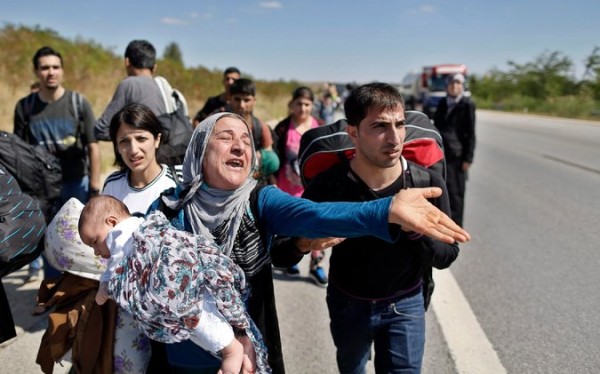PBS: Escaping Eritrea … [Read More...] about ካብ ውሽጢ ቤት ማእሰርታት ኤርትራ
Eastern Europe’s Short Memory
Even as Europe’s greatest refugee emergency since World War II grew more acute, prompting Germany and some other nations to temporarily shut their borders, European Union interior ministers failed on Monday to agree on even a limited mandatory distribution of refugees for resettlement among member states.
That tragic reaction was all the more shameful because those most adamantly opposed to quotas were some Eastern European countries that recently basked in and richly benefited from the embrace of their Western neighbors.

The Central and Eastern Europeans were not alone in their resistance, and there are explanations for their reaction. Most of the countries that were liberated from the Soviet yoke 25 years ago are still poorer than their neighbors and have not shed a sense of victimhood; many have never had large numbers of people from distant parts of the world on their lands; and many have only a limited familiarity with the crises of the Middle East.
All these things, however, are beside the point. The question before Europe’s national leaders is not whether they should welcome immigrants but how to cope with a massive and fateful rush that has put an inordinate burden on the European countries where refugees first arrive: Greece, Italy and Hungary.
In this crisis, attempts to elude responsibility are morally repugnant. While the Eastern Europeans might have reason to be concerned about a sudden influx of foreigners, how does that give them a pass? The proposal by the president of the European Commission, Jean-Claude Juncker, to relocate 160,000 refugees from Greece, Italy and Hungary is an obvious first step, yet it met unyielding resistance — even from Hungary, which would be an initial beneficiary.
Hungary’s prime minister, Viktor Orban, has been among the most vocal in blocking any joint action, but he is not alone. He has argued that Germany is largely responsible for the mass migration because of its prosperity, generous asylum policies and — until this weekend — open borders, and he has made the specious argument that as a Christian country, Hungary should not be made to take in a lot of Muslims. Leaders of Slovakia, the Czech Republic, Poland, Romania and the Baltic States have all advanced similar arguments.
Exasperated by the lack of cooperation from other nations, Germany, which has accepted by far the largest number of refugees so far, temporarily imposed controls on its borders with Austria. That is regrettable, but it was apparently meant as a warning that unless there is an acknowledgment of the common problem, the entire structure of open borders at the heart of the European project could be in danger. In response, Austria, Slovakia and the Netherlands introduced their own border controls on Monday, and Hungary made unauthorized entry a crime.
These developments should be especially worrisome to the Eastern Europeans. Their inability to travel freely was an agonizing aspect of their decades under Communist dictatorship, and the generous welcome they received when they rejoined the ranks of Western liberal democracies was a great triumph for all of Europe. It would be a tragedy if those same eastern countries now contributed to the unraveling of European unity, just when it is so desperately needed.
